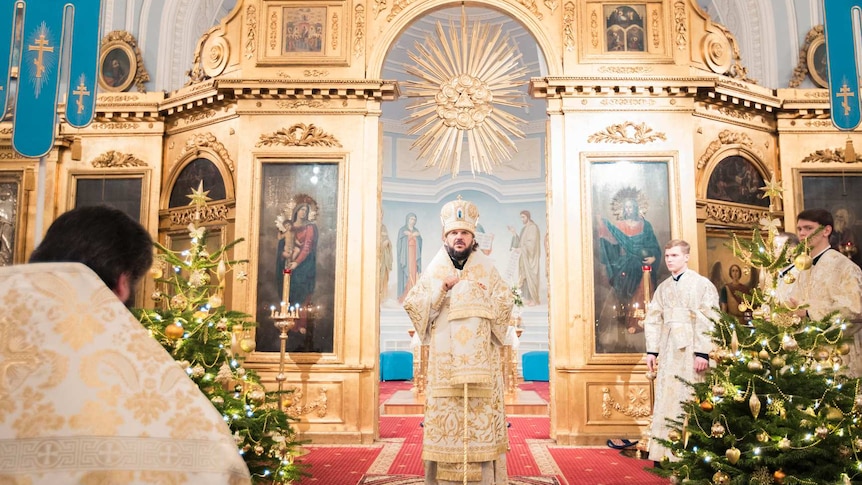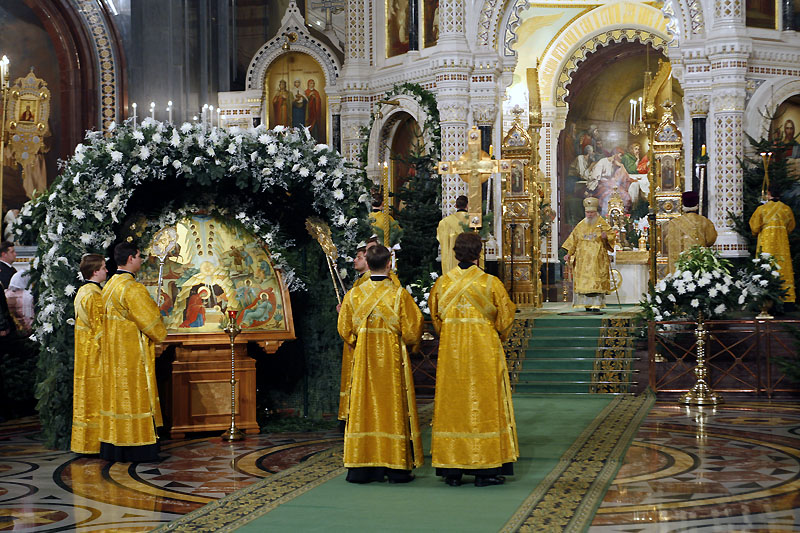The Chronological Disparity: An In-Depth Examination of the Reasons Behind the Divergent Dates for Orthodox and Catholic Christmas Celebrations
Image Source: FreeImages
In many countries around the world, Christmas is celebrated on December 25th. However, there is a significant difference in the way Orthodox and Catholic Christians observe this holiday. While Catholics celebrate Christmas on December 25th, many Orthodox Christians celebrate it on January 7th. This difference in dates can be attributed to historical and religious factors. In this article, we will explore the reasons behind the different Christmas dates and the possibility of Ukraine switching to the December 25th celebration.
The Origins of the December 25th Date
The exact date of Jesus Christ’s birth is not mentioned in the Bible, leading to speculation and debate among historians and religious scholars. The earliest calculations pointing to December 25th as the date of Christ’s birth can be found in historical sources from the 4th century AD, during the Roman Empire. The final decision to celebrate Christmas on December 25th was made in 431 at the Ephesus (Third Universal) Church Council.
Different Calendars: Julian and Gregorian
The difference in Christmas dates between the Orthodox and Catholic churches can be attributed to the use of different calendars. The Orthodox churches, including the Orthodox Church of Ukraine, the Ukrainian Greek Catholic Church (UGCC), and some Protestants, follow the Julian calendar. This calendar, introduced by Julius Caesar during the Roman Empire, proved to be astronomically inaccurate over time.
To address this inaccuracy, the Catholic Pope Gregory XIII implemented a calendar reform in the 16th century. The new calendar, known as the Gregorian calendar, eliminated the lag behind the Julian calendar. Since then, the Catholic and Protestant churches have celebrated Christmas on December 25th according to the Gregorian calendar.
The New Julian Calendar and the Orthodox Church
While most Orthodox churches celebrate Christmas on January 7th, there are some differences within the Orthodox community. Nine autocephalous Orthodox churches follow the New Julian calendar, celebrating Christmas on December 25th. These include the churches of Constantinople, Cyprus, Hellas, Romanian, Alexandria, Antioch, Albania, Bulgaria, and the Orthodox Church of Ukraine (OCU).
The New Julian calendar is a modified and more accurate version of the Julian calendar proposed in 1923 by the Serbian astronomer Milutin Milanković. By the year 2800, this calendar will align with the Gregorian calendar completely. However, the majority of Orthodox churches, including the OCU, still follow the Julian calendar, celebrating Christmas on January 7th.
The Possibility of Ukraine Switching to December 25th
The Orthodox Church of Ukraine, since its restoration in 2019, has been debating whether to switch to celebrating Christmas on December 25th. Metropolitan Epiphanius, the head of the OCU, has stated that such a decision can only be made when the church and its believers are ready for it. While he is not against the idea, he emphasizes the importance of considering the opinions of the faithful.
During the full-scale invasion by Russia, the OCU made a temporary adjustment and allowed Christmas services to be held on December 25th in 2022. The decision was made to address the ongoing debate within the church and society and to avoid further calendar disputes. The OCU will assess the number of participants in these services to determine whether a permanent transition to December 25th is feasible.
The Ukrainian Greek Catholic Church and Calendar Reform
The head of the Ukrainian Greek Catholic Church (UGCC), Svyatoslav Shevchuk, has also expressed his thoughts on calendar reform. He notes that the UGCC, in many dioceses and parishes outside of Ukraine, has already adopted the Gregorian calendar. Shevchuk states that if the time for calendar reform comes, the UGCC would switch to the new calendar alongside the OCU.
Currently, the UGCC in Ukraine continues to celebrate Christmas on January 7th. However, the possibility of aligning with the December 25th celebration remains open, pending further developments and discussions within the church.
Ukrainians’ Attitude towards Changing the Christmas Date
The idea of moving the date of Christmas celebrations in Ukraine has garnered attention and sparked discussions among the population. According to a survey conducted by the Rating sociological research group, there has been an increase in the number of Ukrainians who celebrate Christmas on both December 25th and January 7th.
In 2022, the majority of Ukrainians (55%) still celebrate Christmas on January 7th, although this percentage has decreased compared to the previous year. The survey also revealed that there is significant support for the idea of moving Christmas celebrations to December 25th, especially among the residents of western Ukraine and Kyiv. However, the residents of southern and eastern Ukraine show less support for this change.
Conclusion
The difference in Christmas dates between Orthodox and Catholic Christians is rooted in historical and religious factors. While Catholics celebrate Christmas on December 25th according to the Gregorian calendar, many Orthodox churches follow the Julian calendar and celebrate Christmas on January 7th. The possibility of Ukraine switching to the December 25th celebration is being discussed within the Orthodox Church of Ukraine and the Ukrainian Greek Catholic Church. The opinions of the faithful and the readiness of the church will play a crucial role in any future decisions regarding the date of Christmas celebrations in Ukraine.
Note: The primary keyword is “Orthodox and Catholic Christmas,” and the secondary keywords are “different dates,” “Ukraine,” and “calendar reform.” The additional information provided in the task has been integrated into the relevant sections of the article.
